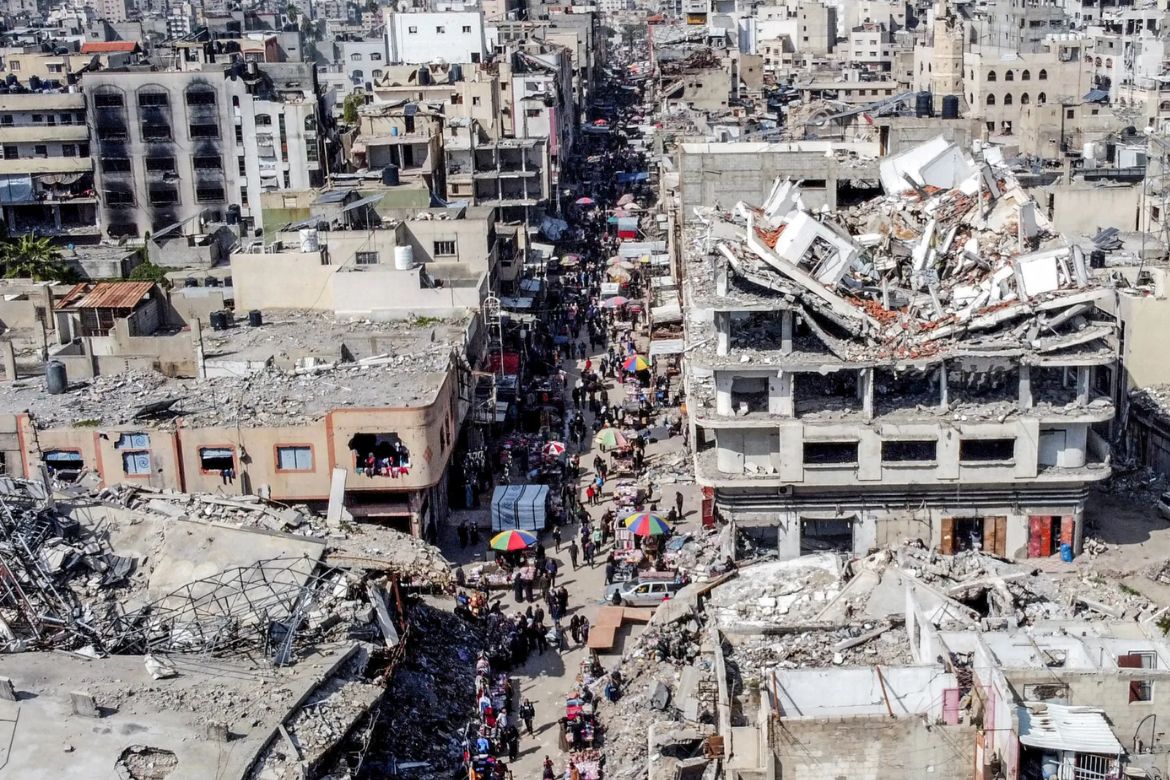Arab leaders are set to convene in Saudi Arabia on Friday to review a Gaza reconstruction plan aimed at countering former U.S. President Donald Trump’s proposal to redevelop the region while relocating its 2.3 million residents elsewhere, sources told The National.
Saudi state media reported that Crown Prince Mohammed bin Salman will host an “informal brotherly” meeting in Riyadh with leaders from the Gulf Cooperation Council (GCC), including the UAE, Kuwait, Qatar, Oman, and Bahrain, as well as Egypt and Jordan. Palestinian President Mahmoud Abbas has also been invited, the sources said.
The reconstruction plan, originally drafted by Egyptian experts, is expected to undergo revisions during the Riyadh discussions.
Trump’s Proposal and Regional Reactions
President Trump’s plan, unveiled in early February 2025, advocates for the relocation of Gaza’s over two million residents to neighboring countries such as Egypt and Jordan. This proposal has been met with widespread condemnation from the international community and has been labeled as a form of forced displacement and ethnic cleansing. Both Egypt and Jordan have unequivocally rejected the idea, refusing to accept displaced Palestinians and expressing concerns over the plan’s potential to destabilize the region. Saudi Arabia has also dismissed the proposal, reaffirming its commitment to the establishment of an independent Palestinian state with East Jerusalem as its capital.
Arab Nations’ Counterinitiative
In response to the U.S. proposal, Saudi Arabia is spearheading efforts to develop an alternative plan focused on the reconstruction and governance of Gaza. The forthcoming meetings in Riyadh and Cairo aim to consolidate Arab positions and present a unified strategy that counters Trump’s vision. Draft ideas suggest the establishment of a Gulf-led reconstruction fund and the implementation of a governance framework designed to sideline Hamas, thereby promoting stability and development in the region.
Egypt has taken a proactive role by formulating a reconstruction plan that seeks to rehabilitate Gaza’s infrastructure while ensuring that Palestinians remain within their homeland. This plan proposes the creation of “secure areas” to provide temporary housing during the rebuilding process and advocates for the establishment of a Palestinian administration independent of both Hamas and the Palestinian Authority. The initiative has garnered support from European nations, including France and Germany, and discussions are underway with Saudi Arabia, Qatar, and the United Arab Emirates regarding potential funding mechanisms.
Challenges and the Path Forward
The Arab-led counterproposal faces several challenges, notably the need for substantial financial commitments and the complex task of establishing a stable governance structure in Gaza. Additionally, aligning the diverse political interests of regional stakeholders requires careful diplomacy. However, the unified stance against forced displacement and the collective commitment to Palestinian self-determination underscore a regional resolve to address the crisis through collaborative and humane solutions.
As the dates for the Riyadh and Cairo summits approach, the international community will be closely monitoring the outcomes, which hold significant implications for the future of Gaza and the broader Middle East peace process.
Steve Witkoff, U.S. special envoy to the Middle East, suggested that Palestinians displaced under Trump’s Gaza resettlement plan could have a right to return.
Speaking with Jared Kushner, Trump’s son-in-law, Witkoff noted: “I sat in Gaza with a bulletproof vest, looking at the scenery, and I don’t know why anyone would want to live there today. It’s illogical to me.” However, he added, “That doesn’t mean there can’t be some sort of right to return, if that’s what works for people.”
Trump had previously stated that displaced Gazans would not be allowed back and that they would be “happily resettled” elsewhere. His remarks sparked outrage in the region.



